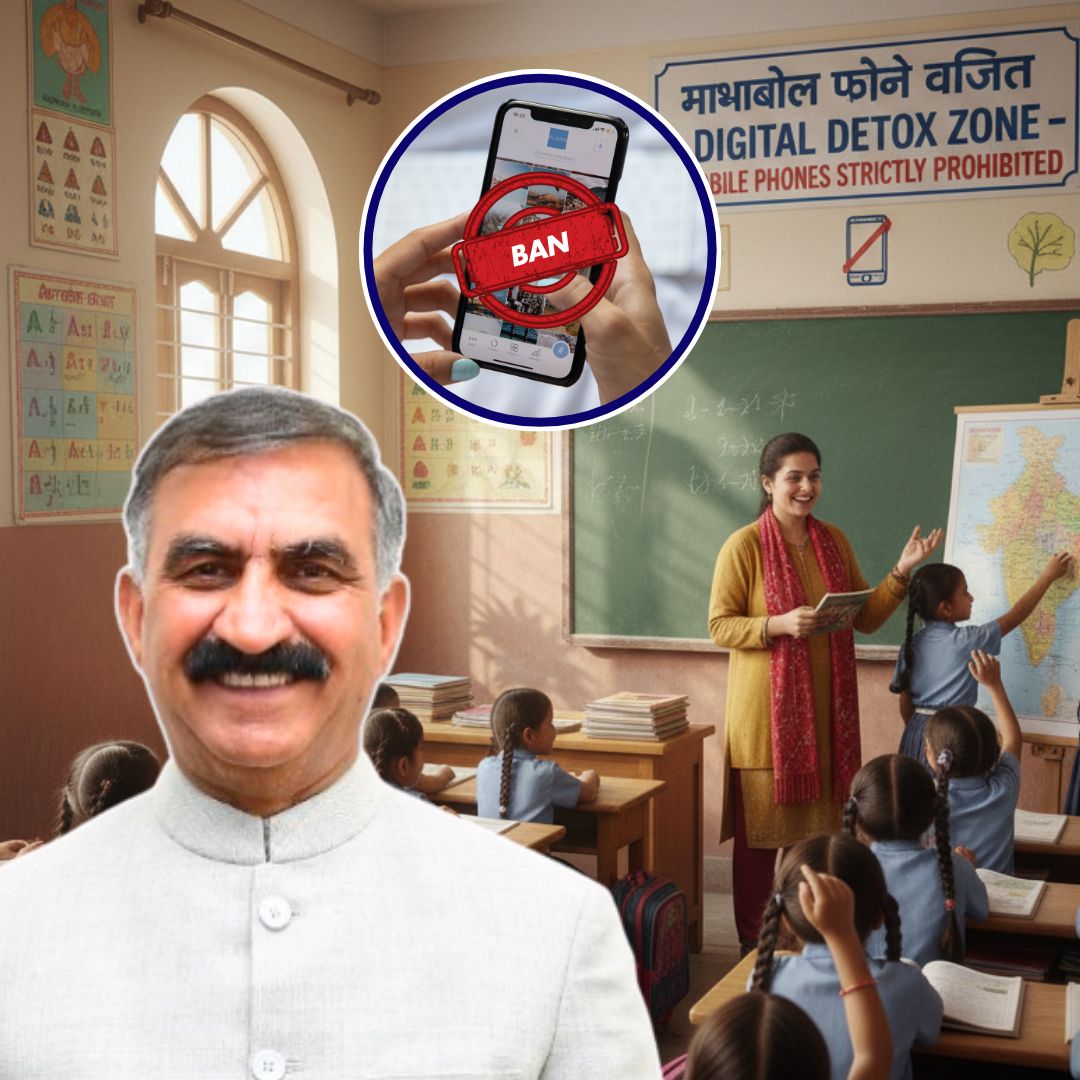The Himachal Pradesh Education Department issued a directive banning the use of mobile phones during school hours across all government schools. The order mandates that teachers deposit their phones in secure, CCTV-monitored locations before entering classrooms, while students are completely prohibited from bringing mobile phones to school.
Director of School Education Ashish Kohli described mobile phones as a major source of distraction that adversely affects students’ academic and non-academic performance.
The ban aims to reduce interruptions, improve classroom focus, and promote healthier student–teacher engagement. Schools are also required to display the ban clearly on notice boards and provide landline phones for emergency use, with contact numbers shared with parents and guardians.
Health and Psychological Concerns
The policy highlights various social, psychological, and physical harms attributed to excessive mobile phone use among students. Officials cite issues such as anxiety, stress, sleep disturbances, social isolation, and reduced participation in face-to-face interactions.
Physical health concerns include eye strain, hearing problems, poor posture, and a sedentary lifestyle, which have become increasingly prevalent with prolonged screen time. By curbing mobile phone access during critical learning hours, the Education Department hopes to foster a safer, healthier, and more focused classroom environment, contributing to the overall well-being of students and teachers alike.
Implementation and Monitoring
To ensure effective enforcement, schools must make provisions for secure storage of teachers’ mobile phones under CCTV surveillance. Deputy Directors of Education have been tasked with strict monitoring and enforcement across their respective jurisdictions.
Disciplinary actions will be taken against violators to maintain compliance. Parents are reassured through the provision of functional landline phones in schools, allowing them to contact their children in emergencies without compromising the ban. This approach balances the need for security and communication with the objective of minimizing digital distractions.
Implementation Challenges and Teacher Concerns
While the mobile phone ban in Himachal Pradesh government schools has been broadly welcomed, it also faces certain implementation challenges and concerns from teachers. Some educators have expressed worries about how the ban might affect their ability to efficiently manage administrative tasks such as attendance, mid-day meal records, and timely communication that often rely on mobile devices.
School authorities are tasked with balancing the enforcement of the ban while ensuring that teachers can carry out their responsibilities effectively. Additionally, there are logistical challenges in securely storing teachers’ phones and monitoring compliance consistently across diverse school environments.
The Department of Education has called for cooperation among all stakeholders, teachers, parents, and students, to ensure the policy meets its goals without hindering daily school operations. This balance is crucial to achieving distraction-free classrooms while maintaining smooth administrative functioning and morale among staff.
The Logical Indian’s Perspective
The Logical Indian supports measures that promote focused learning and constructive student-teacher interaction while encouraging kindness and empathy in educational spaces.
However, such policies should be implemented with sensitivity, recognising children’s emotional needs and the importance of clear communication with all stakeholders. As mobile devices are becoming integral to everyday life, schools face the challenge of encouraging responsible use without sacrificing academic engagement or well-being.











